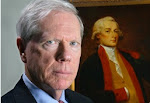 |
| wiki byzantine |
I don't understand religion.
Sometimes when I think about the effects religion has upon people I become frightened.
I see people transformed, as they describe their particular God's intentions for makind, into those automatons that I've read participated in the French revolution. Friends and neighbors, baker turned guillotine-operator, eyes mad with blood lust.
Perhaps I am seeing something that really is not there? I think not.
Beliefs hold strong power over us all. Cracking through our belief system seems impossible on both sides - whether trying to convince someone, or when confronted with evidence that we have been so so wrong about something we'd thought we really knew.
Religious beliefs held by many confuse me. How can a person claim to live by a law given to them by their own God: "Thou shalt not kill" and then add "but....it's ok under these circumstances" to the end of God's sentence?
How can a person not see that there may be things that they cannot know - like other people's Gods? When people tell me things on God's behalf I wonder why God wouldn't just tell me himself - right? How can people expect me to believe in their God if their God is telling them to kill people? My God tells me NOT to kill people - it's one of his ten commandments. Doesn't that make my God better?
We can go on forever about these belief issues - which is why we are doing everyone a service by adhering to a legal system of agreed-upon laws which we all agree to live by. Finding a way to keep individual religions out of it is almost impossible since it seems that our laws have religious foundations somewhere along the timeline of the past.
How can a person tell me God told them something I need to know - but they can't get God to say the same thing to me out loud so I can hear it too. Usually the next thing they tell me is I have to pony up some cash so they can do more good. Why does their God need my money? Yes a bit of sarcasm.
I do not wish to poke fun at religious beliefs because I have too much respect for my religious friends and also know that maybe they know something I don't know - maybe they do have a special insight in these religious matters that I do not have. In the meantime - while we philosophize over that - we have to get on with living our lives as I have been told.
That means mutual respect - then we get into definitions of "good" religions and "bad" religions. These are also fascinating discussions which can lead to historical "proof" of said religious beliefs backing up this or that God under discussion. Henry Ford said that "history is bunk" which makes me wonder if that statement applies to historical proof of religious beliefs.
Yesterday I took a look at a few websites discussing acupuncture. One site was Wikipedia and then some independent ones which gave a much more balanced and respectful viewpoint of this part of Chinese medicine. Acupuncture may be sneered at in Western culture because it is not based on science - but does that necessarily mean that it won't work? I thought the Hippocratic Oath was at the basis of medical morality "First do no harm" - perhaps that means acupuncture should be tried if there is a possibility that it "works" to treat maladies and causes no harm. Perhaps acupuncture really works and is a powerful tool that we simply cannot explain using science as the medium of explanation - I don't know. Are there parallels with religion I wonder?
In the world of peace I envision people do not have wars over religion. But is there a possibility that this is an impossible dream if religion is at the base of our common morals. If we no longer rely on laws - like the Constitution and Bill of Rights which seem written in an effort to minimize our tendency to fall back on religious-based decision making - then the most popular religions will be at odds with each other on certain major issues. Religions seem to justify violent action when certain sins are committed - and voila - we have mortal combat and war. I know the Pope has recently come out and said that "killing in the name of God is blasphemy"- but I also know that Christians in general have not heard that word because that is not what they tell me they believe.
A respect for ALL human life, at a minimum, must be our common value: Whether a value of religion A or religion B does not matter. What matters is finding those commonalities upon which we can all agree - then work out from there.
The alternative is to continue the tendency - whether fomented by media masters or not, toward a religious war - a war that may have to burn itself out. A war that once started will escape the control of its masters (slaves?) leading to nothing but waste. What are your religious leaders doing to prevent this? Are they reminding their flocks of their duty to uphold what used to be American values like "Thou shalt not torture people," "Thou shalt not lie countries into wars," etc...??
 |
| http://en.wikipedia.org/wiki/Guillotine#mediaviewer/File:Exécution_de_Marie_Antoinette_le_16_octobre_1793.jpg |
Where were all these pious religious leaders, call them saints if you wish, on television when it was time to speak out against torture, trampling of rights, spreading of fear and terror for cash prizes - where were the churches etc...??? They may have forgotten their duty to remind their parishioners
of their moral duties and to hold their public servants accountable for high crimes - but I'll bet they never forgot to pass around the collection basket!
Perhaps the fight we are really involved in here in the "States and by extension, the rest of the world, is a battle for our common values. Common values at a very local level extending up to common values at a national level - then international. Laws binding all parties are enacted every day - do these laws represent our values? It seems more often than not we find ourselves confronted with laws that do not serve the common good. Sometimes what is considered "common" changes - like the mix of religious belief systems - then the trouble begins it seems. Doesn't it make sense to always remember that religious systems are indeed belief-based - but can only serve as the foundations for why we enact certain laws - but should never be the legal system themselves?
Or are we forever trapped within the limits of our abilities as human beings to grasp what common set of values can bring us together to create the best world possible for all of us?
 |
| http://en.wikipedia.org/wiki/Islam |










































































.jpg)












